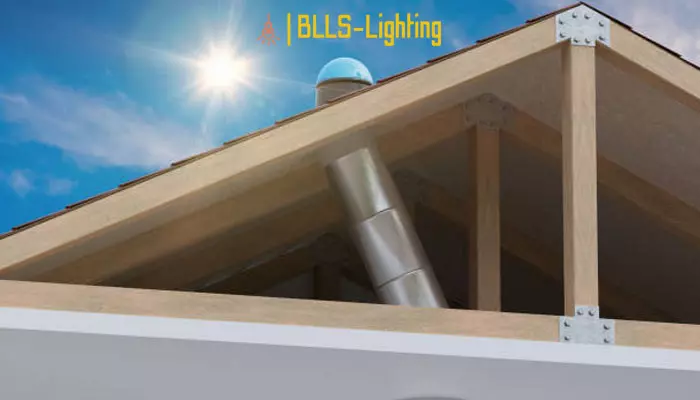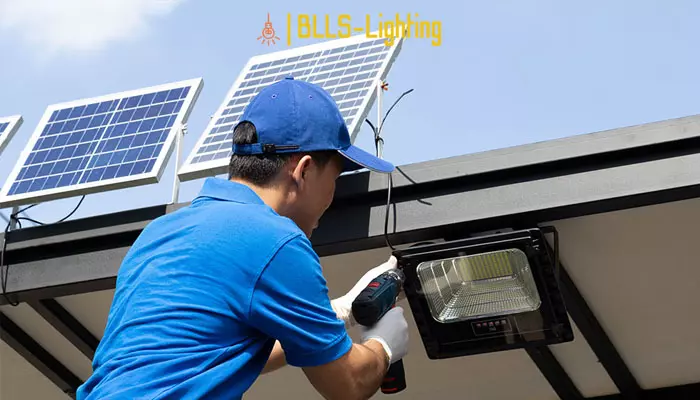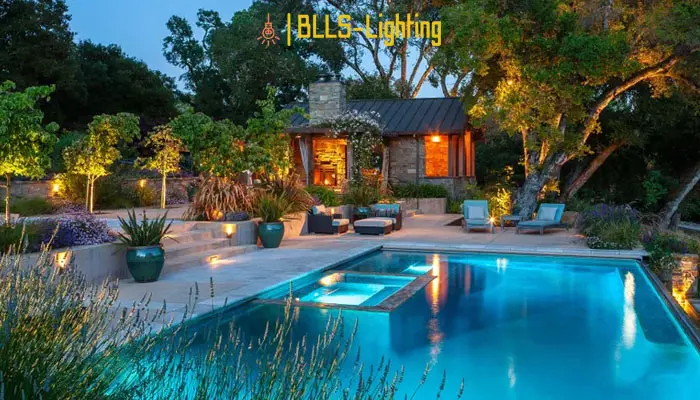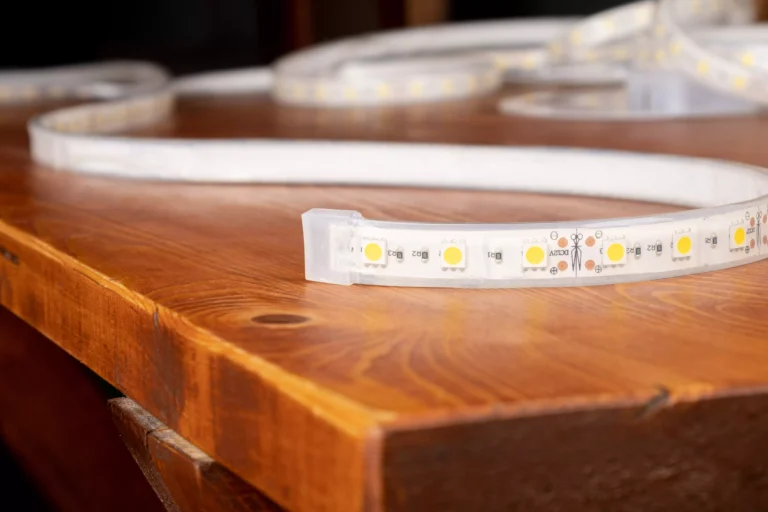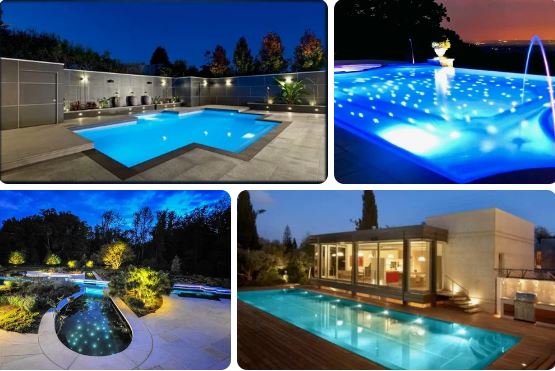As someone deeply immersed in the world of pool lighting, I’ve witnessed firsthand the transformative power of these luminous wonders. From the serene glow of a backyard oasis to the vibrant colors of a bustling resort pool, the right lighting can elevate any aquatic experience.
However, amidst the enchantment, a common question arises from pool owners and enthusiasts alike: “How long do pool lights last?” This query is not just about durability but also about the value and reliability of their investment.
Drawing from years of experience, I’ve seen the evolution of pool lighting from traditional incandescent bulbs to the modern marvel of LED technology. Each summer, as the pools come to life under the starlit sky, the resilience and longevity of LED pool lights stand out.
They not only cast a magical ambiance but also promise an enduring glow that outshines their predecessors. This leads us to the heart of the matter: “How long do LED pool lights last?” Join me as we dive into the depths of LED pool lighting longevity, unraveling the story behind their lasting brilliance.
Pool Light Lifespan and Types
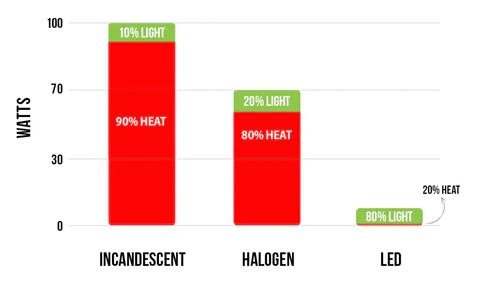
Incandescent Pool Lights
- Lifespan: 800-1,000 hours
- Pros: Warm, inviting glow
- Cons: Inefficient, short lifespan
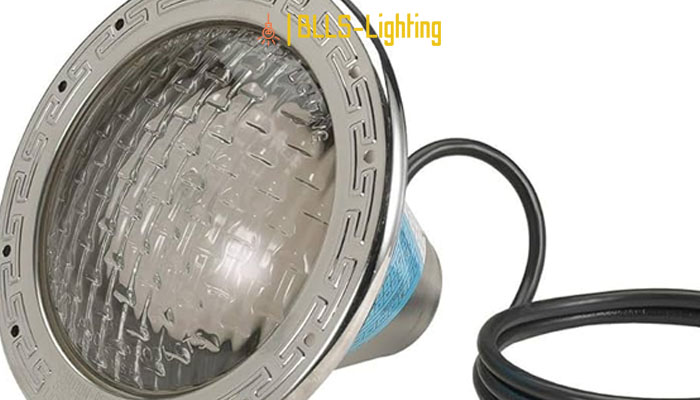
Halogen Pool Lights
- Lifespan: Up to 4,000 hours
- Pros: Brighter than incandescent lights, slightly more efficient
- Cons: Still shorter lifespan than LED lights
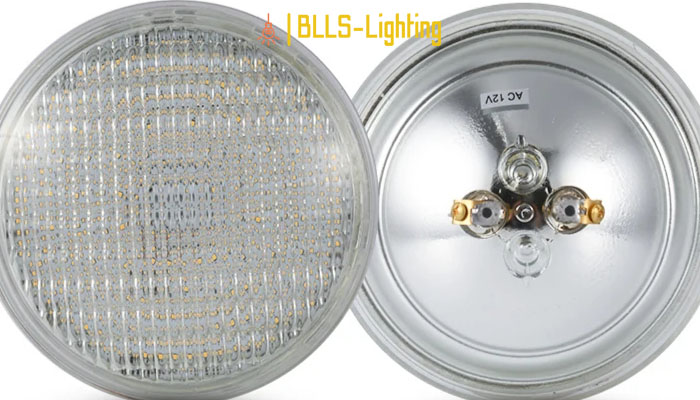
LED Pool Lights
- Lifespan: Over 50,000 hours
- Pros: Energy-efficient, bright, environmentally friendly, extremely long lifespan
- Cons: None
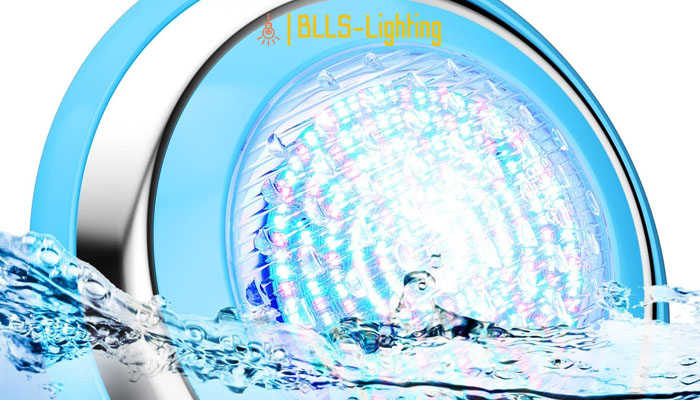
How Long Do Pool Lights Stay On?
The duration of pool light usage varies depending on factors such as pool usage patterns, lighting requirements, and personal preferences. Generally, pool lights can remain on:
- Daily: 8-12 hours or more
- Weekly: 40-60 hours or more
When to Replace Pool Lights?
Consider replacing pool lights in the following situations:
- Dimming or reduced light output
- Discoloration or discoloration of the light bulb
- Visible cracks or damage to the housing
- Flickering or intermittent operation
Signs of a Failing Pool Light
- Noticeable reduction in brightness
- Sudden flickering or dimming
- Corrosion or rust on the housing
- Water leaking into the light cavity
Average Pool Light Life Expectancy
- Incandescent: 800-1,000 hours
- Halogen: Up to 4,000 hours
- LED: Over 50,000 hours
How Many Hours Does a Pool Light Last?
The lifespan of a pool light depends on its type:
- Incandescent: 800-1,000 hours
- Halogen: Up to 4,000 hours
- LED: Over 50,000 hours
Factors Affecting Pool Light Life
- Type of Light: LED lights have a significantly longer lifespan than incandescent or halogen lights.
- Usage: Extended periods of operation can shorten lifespan.
- Water Chemistry: Improper water balance, including high chlorine levels, can damage light components.
Energy Efficiency of Pool Lights
- LED: Most energy-efficient, using up to 80% less energy than halogen or incandescent lights.
- Halogen: More efficient than incandescent lights but less efficient than LED lights.
- Incandescent: Least energy-efficient, consuming the most energy.
Comparison of Pool Light Types
| Feature | Incandescent | Halogen | LED |
|---|---|---|---|
| Lifespan | 800-1,000 hours | Up to 4,000 hours | Over 50,000 hours |
| Energy Efficiency | Least efficient | More efficient than incandescent | Most efficient |
| Brightness | Warm glow | Brighter than incandescent | Bright |
| Color Temperature | Warm | Bright white | Customizable |
| Cost | Inexpensive | More expensive than incandescent | Most expensive |
How Long Do LED Pool Lights Last: A Deep Dive into Their Longevity
The quest for the perfect pool lighting solution often leads homeowners and pool enthusiasts to one critical question: “How long do pool lights last?” In the vibrant world of pool illumination, LED pool lights emerge as the champions of longevity and efficiency.
This superiority is not by chance but the result of innovative technology and design principles that set LED lights apart from their incandescent and halogen counterparts.
Let’s explore the reasons behind the remarkable lifespan of LED pool lights and offer guidance on selecting durable options for an enchanting night swim experience.
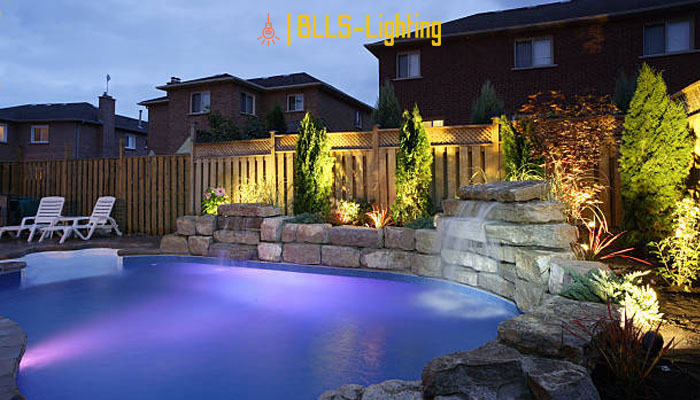
The Innovative Technology Behind LED Pool Lights
LED pool lights revolutionize underwater illumination with their cutting-edge technology. Unlike incandescent or halogen lights, LEDs employ semiconductors to convert electrical energy directly into light, bypassing filament heating. This innovative approach significantly extends the lifespan of LED pool lights.
Key Factors Contributing to LED Pool Light Longevity
Several crucial factors enhance the longevity of LED pool lights:
- Energy Efficiency: LEDs’ low power consumption reduces stress on the electrical system, promoting long-term performance.
- Low Heat Production: LEDs emit light without generating excessive heat, protecting components from thermal damage.
- Robust Design: The durable construction of LED pool lights, featuring sturdy housings, gaskets, and heat sinks, ensures reliability in underwater environments.
- Maintenance and Cost-Effectiveness: LED pool lights require minimal bulb replacements and consume less energy, translating into significant cost savings and hassle-free maintenance.
Selecting LED Pool Lights for Enhanced Durability and Safety
When it comes to elevating the ambiance of your swimming pool with lighting, LED pool lights stand out for their superior standards in durability, safety, and energy efficiency.
To ensure that your investment in pool lighting endures, it’s crucial to consider both the material of the lights and their safety features meticulously. Let’s delve into how to choose LED pool lights that promise a long-lasting and safe illumination experience.
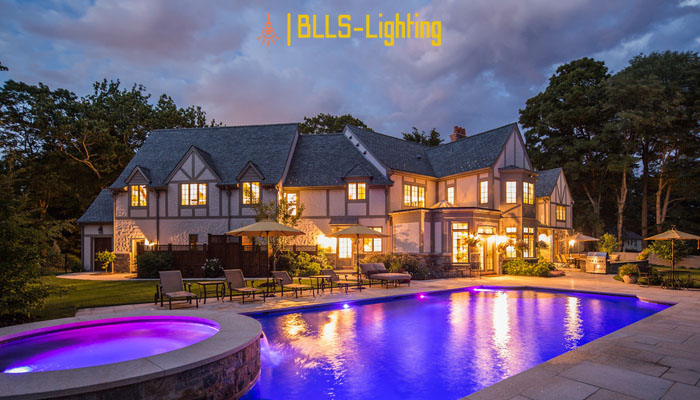
Prioritizing Safety in LED Pool Lights
Electrical safety is paramount when it comes to pool lighting. Consider IP68 waterproof rating to ensure complete protection against water and dust ingress. Additionally, low voltage (12v-24v) minimizes the risk of electrical leakage into the water, safeguarding swimmers and preventing accidents.
Certification: A Marker of Quality and Safety
Invest in LED pool lights that have undergone rigorous testing and certification from recognized organizations. These certifications attest to the lights’ compliance with established safety, quality, and performance standards. Look for certifications such as ETL, CSA, CE, or UL, which provide peace of mind and longevity.
Material Matters: Stainless Steel vs. Plastic Pool Lights
Stainless Steel Pool Lights
Stainless steel is renowned for its durability and corrosion resistance. Opt for stainless steel 316 specifically for saltwater environments, as it offers enhanced protection against pitting and rust.
Plastic Pool Lights
Plastic pool lights provide an affordable alternative. Advanced antioxidant additives render these lights durable. They are a cost-effective solution for budget-conscious consumers.
The Importance of Lens Material
Lens material plays a crucial role in pool lighting. Tempered glass or polycarbonate (PC) lenses are highly recommended for their strength and safety.
- Tempered glass: Withstands impact and shatters into small, safe pieces, reducing the risk of sharp edges.
- PC lenses: Durable, impact-resistant, and lightweight, providing excellent insulation for added protection.
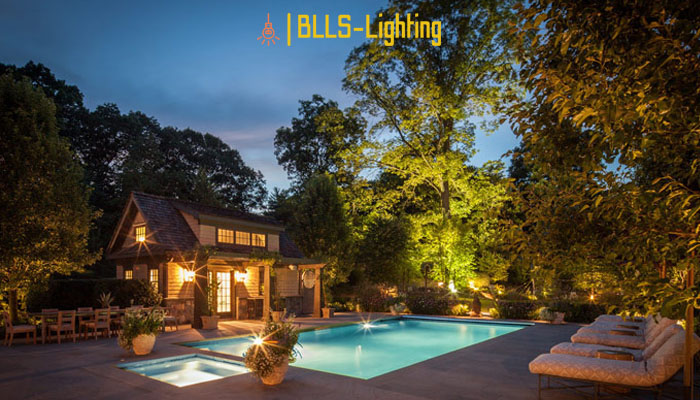
Pool Light Maintenance: Maximizing Lifespan and Optimizing Performance
Ensuring proper maintenance of your pool lights is crucial for extending their lifespan and maintaining optimal performance. Here are some key maintenance tips:
1. Regular Inspection and Timely Repairs
- Inspect your pool lights periodically for any signs of malfunction, such as flickering, dimming, or water infiltration.
- Promptly investigate any issues and make necessary repairs to prevent further deterioration.
- Address any water infiltration to maintain the longevity of the light fixtures.
2. Compatibility of Control Systems
- For LED pool lights, it’s essential to ensure compatibility between the control system and the lights.
- Incompatible controllers can adversely affect the performance and lifespan of your LED lights.
3. Pool Cleanliness
- Regularly clean your pool to prevent excessive accumulation of impurities that can damage pool lights.
- Implement a consistent cleaning schedule to maintain water quality and prevent damage to the light fixtures.
4. Latest LED Pool Lighting Technology
- Explore the diverse range of LED pool light options available today, including different lumen outputs, color temperatures, and beam angles.
- Consider the unique aspects of your pool and personal preferences when selecting lights.
- Opt for lights that enhance both pool functionality and aesthetic appeal.
FAQs:
Are there any factors that can affect the lifespan of pool lights, such as usage patterns or environmental conditions?
Yes, several factors can influence the lifespan of pool lights. These include the frequency of usage, operating hours per day, water chemistry (such as pH levels), exposure to harsh chemicals or saltwater (in the case of saltwater pools), and the quality of the light fixtures themselves. Additionally, extreme temperatures and weather conditions can also impact the longevity of pool lights.
Do LED pool lights come with warranties to guarantee their lifespan?
Yes, many LED pool lights come with warranties to ensure their lifespan. These warranties typically cover defects in materials and workmanship, as well as the performance and longevity of the LED lights. The length and terms of the warranty may vary depending on the manufacturer and specific product.
Are there any signs or indicators that it’s time to replace pool lights before they fail completely?
Yes, there are several signs that indicate it may be time to replace pool lights. These include a noticeable decrease in brightness or uneven lighting, flickering or intermittent operation, signs of corrosion or water intrusion in the light fixture, or if the lights are reaching the end of their expected lifespan based on usage hours.
Are there any specific maintenance requirements for LED pool lights?
LED pool lights generally require minimal maintenance compared to traditional lighting options. However, it’s essential to regularly inspect the lights for any signs of damage, corrosion, or water leakage. Cleaning the light lenses and fixtures periodically to remove debris or buildup can also help maintain optimal performance. Additionally, ensuring proper water chemistry and avoiding harsh chemicals can prolong the lifespan of LED pool lights.
What are the benefits of switching to LED pool lights compared to traditional options?
LED pool lights not only enhance the aesthetics of the pool environment but also play a pivotal role in enriching the swimming experience, promoting safety, and extending the hours of pool enjoyment well into the night.
Consider the scenario of a family hosting a summer barbecue. As dusk descends, the LED pool lights cast a mesmerizing glow over the water, creating an inviting atmosphere for guests to enjoy. Children splash and play with newfound enthusiasm, while adults unwind in the soothing embrace of the illuminated pool. Laughter fills the air, and memories are made against the backdrop of shimmering LED lights, enhancing the overall enjoyment of the evening.
How difficult is the installation process for LED pool lights?
The difficulty of installing LED pool lights can vary depending on factors such as the type of pool, existing electrical infrastructure, and personal expertise. While some homeowners may feel comfortable installing LED pool lights themselves, it’s often recommended to hire a professional installer. Professional installers have the necessary skills, experience, and equipment to ensure a safe and proper installation, minimizing the risk of errors or complications.
When it comes to installing pool lighting, especially LED pool lights, it’s crucial to prioritize safety, efficiency, and longevity. Therefore, I highly recommend seeking professional installation services to ensure the best results.
For those exploring comprehensive lighting solutions that extend beyond the water’s edge, delving into pool cage lighting can offer additional insights and options, enriching your poolside experience further.

